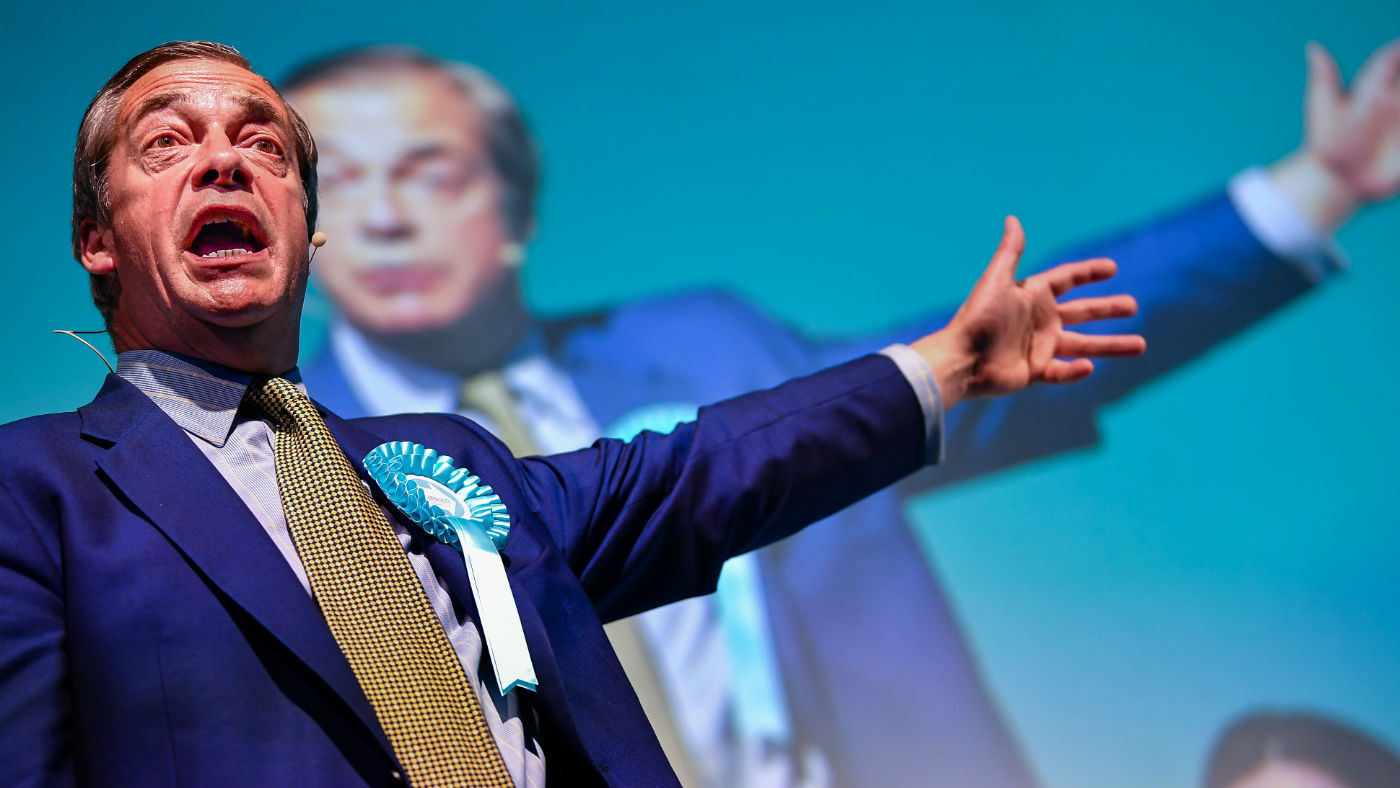Nigel Farage says he will not stand in general election
Brexit Party leader says he can better ‘serve the cause’ by supporting his party’s 600 candidates across the UK

A free daily email with the biggest news stories of the day – and the best features from TheWeek.com
You are now subscribed
Your newsletter sign-up was successful
Nigel Farage has said he will not stand in the upcoming general election, claiming he could better “serve the cause” by supporting his party’s 600 candidates across the UK.
On Friday, the Brexit party leader offered Boris Johnson the choice of forming an electoral alliance or facing a nationwide challenge in every seat at the election.
Reuters described the announcement “as a potential setback for Johnson”, which “risks splitting the vote of Brexit supporters in an election that will once again pit those who want to leave the European Union against those who want to stay, more than three years after Britain voted to quit the bloc in a referendum”
The Week
Escape your echo chamber. Get the facts behind the news, plus analysis from multiple perspectives.

Sign up for The Week's Free Newsletters
From our morning news briefing to a weekly Good News Newsletter, get the best of The Week delivered directly to your inbox.
From our morning news briefing to a weekly Good News Newsletter, get the best of The Week delivered directly to your inbox.
Speaking to the BBC’s Andrew Marr, Farage, who has stood unsuccessfully for Parliament seven times, once again criticised the prime minister’s Brexit deal as “virtually worse that being in the EU”.
His political opponents “will suggest he's not going to run because he thinks he’s not going to win” says BBC political correspondent Jessica Parker. “But the flip side is that rather than concentrating on one constituency where he personally might try to win, Farage is making it clear he's going to try to make Boris Johnson's life pretty difficult”.
In an interview with The Sunday Times, the former Ukip leader revealed that he had twice been offered a peerage in an attempt to get him to stand down Brexit Party candidates who are making things difficult for the Conservatives.
However, former UKIP top donor and Leave.EU co-founder Arron Banks told The Sunday Express Farage needs to “step back and be more strategic,” adding: “The announcement he will stand candidates in every seat unless Boris forms a pact with him is unnecessarily belligerent.”
A free daily email with the biggest news stories of the day – and the best features from TheWeek.com
–––––––––––––––––––––––––––––––For a round-up of the most important stories from around the world - and a concise, refreshing and balanced take on the week’s news agenda - try The Week magazine. Get your first six issues for £6–––––––––––––––––––––––––––––––
Following a weekend of political manoeuvring from all the major party leaders, the prime minister once again ruled out an electoral pact with Farage, and told Sky’s Sophie Ridge he would not grant permission for a second referendum on Scottish independence, adding that people do not think referendums are “very wonderful for harmony.”
Labour, buoyed by a new poll which shows they have enjoyed a bounce since the election was called, struck a decidedly more conciliatory tone, with the shadow business secretary Rebecca Long-Bailey saying if the Scottish government went through the legislative process, her party would not stand in the way of a Scottish independence referendum.
A YouGov survey for The Sunday Times found that Labour had gained six points between Wednesday and Friday. Jeremy Corbyn’s party is now on 27%, 12 points behind the Tories, while the Liberal Democrats have slipped three points to just 16%.
A separate poll for The Sunday Telegraph put the Conservatives only eight only points ahead of Labour, “likely to spark concern within the Conservative campaign” says the paper with experts warning Johnson will need to significantly increase his lead to be sure of securing a majority.
The prime minister, who has apologised to Tory members for not taking Britain out of the EU on 31 October despite his “do or die” pledge, was handed another political headache after Politico revealed the Lib Dems, Greens and Plaid Cymru were on the cusp of agreeing an electoral pact that would see the Remain-supporting parties stand aside for one another in up to 60 seats.